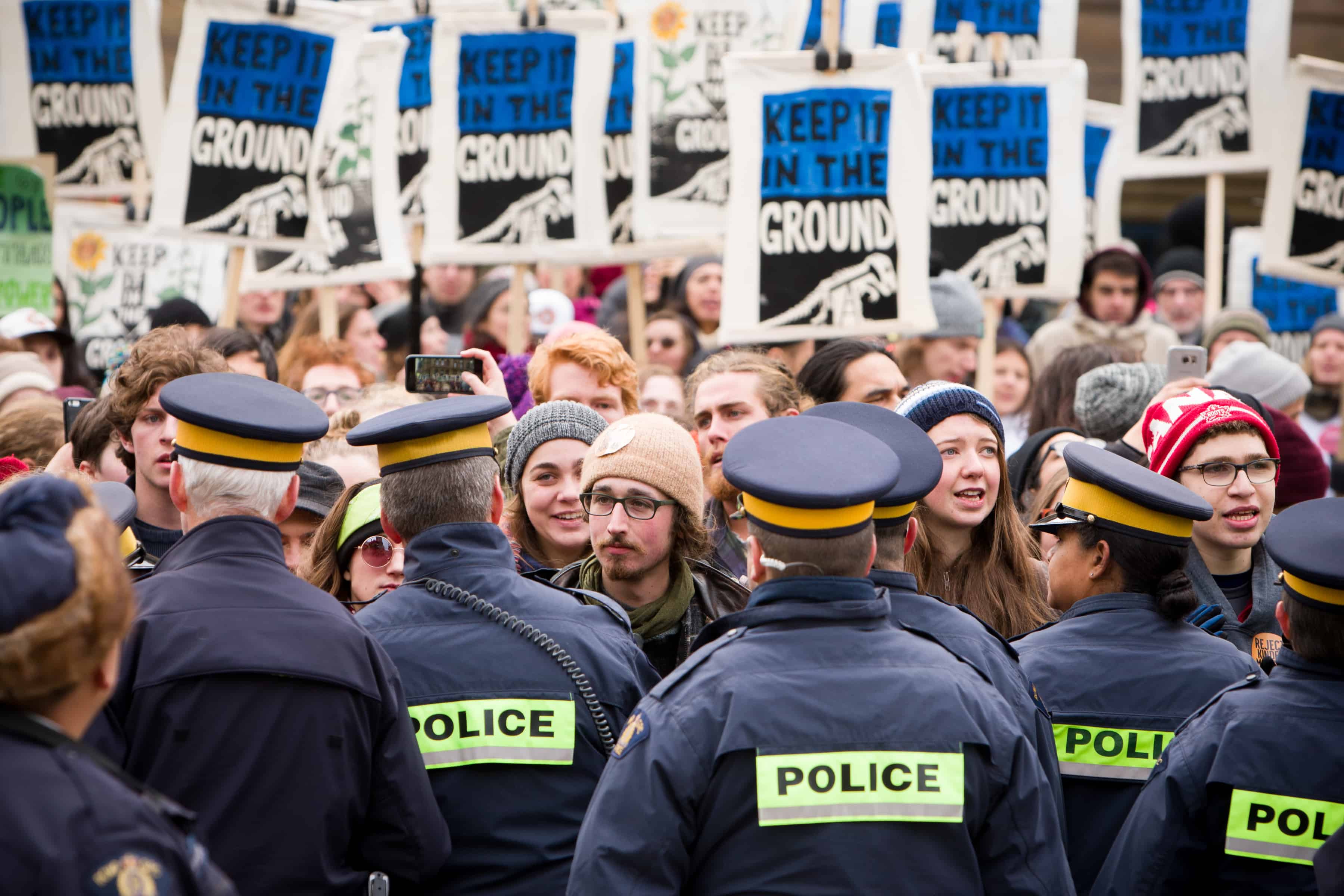On October 24, approximately 200 protesters marched on Parliament Hill on behalf of Climate 101, a group in opposition to the proposed Trans Mountain pipeline expansion and further oil infrastructure expansion. A total of 99 individuals were arrested and issued citations by the Royal Canadian Mounted Police for trespassing.
The Trans Mountain pipeline expansion is a $6.8 billion project proposed by US energy company Kinder Morgan; it would become the only pipeline system within North America carrying crude oil and refined products to the west coast. The expansion would run from Edmonton, Alberta to Burnaby, British Columbia alongside the existing Trans Mountain pipeline.
Amanda Harvey-Sanchez, a third-year student at U of T, was among the 99 protesters arrested. She told The Varsity, “The Liberal government was elected on a promise to respect Indigenous rights, take strong action on climate change, and address the needs of young people. If [Prime Minister Justin Trudeau] approves the Kinder Morgan pipeline this December, he will break all of those promises.”
Harvey-Sanchez also believes that the protest achieved its target, which was to bring “the issue of Kinder Morgan outside of BC and show Trudeau that young people across the country are calling on him to reject the pipeline.”
Anti-pipeline protestors say that the Kinder-Morgan pipeline poses health risks and compromises the future of today’s generation and the Indigenous peoples of Canada. Harvey-Sanchez explained that pipeline spills pose “significant health risks because they contaminate the ecosystems that communities depend on for food and water.”
“The Kinder Morgan pipeline would also require increased tanker traffic, meaning that there is the additional risk of spills at sea,” Harvey-Sanchez continued. “Pipelines and tankers carrying diluted bitumen, such as Kinder Morgan, are especially prone to failure, the spills are much harder to clean, and the impacts are worse than with conventional oil.”
In terms of the impact on the First Nations population, Harvey-Sanchez gives a Canadian example: the Aamjiwnaang First Nation, a community near Sarnia, Ontario. It is “surrounded by 40% of Canada’s petrochemical refineries and is a striking example of environmental racism. The health impacts from pollutants in Aamjiwnaang include skewed birth ratios and increased risk of cancer.”
Detractors say that approval of Kinder Morgan would indicate a refusal to work with the Indigenous population of Canada, particularly those who have opposed the pipeline. Harvey-Sanchez believes Trudeau’s message of ‘real change’ elevates the protestors sentiments, who believe that real change is comprised of opposition “to pipelines” and supporting “strong climate action and respect for Indigenous rights.”
The federal government has not made a decision on whether to approve the pipeline expansion, although Bloomberg reports that the project is likely to be approved.


